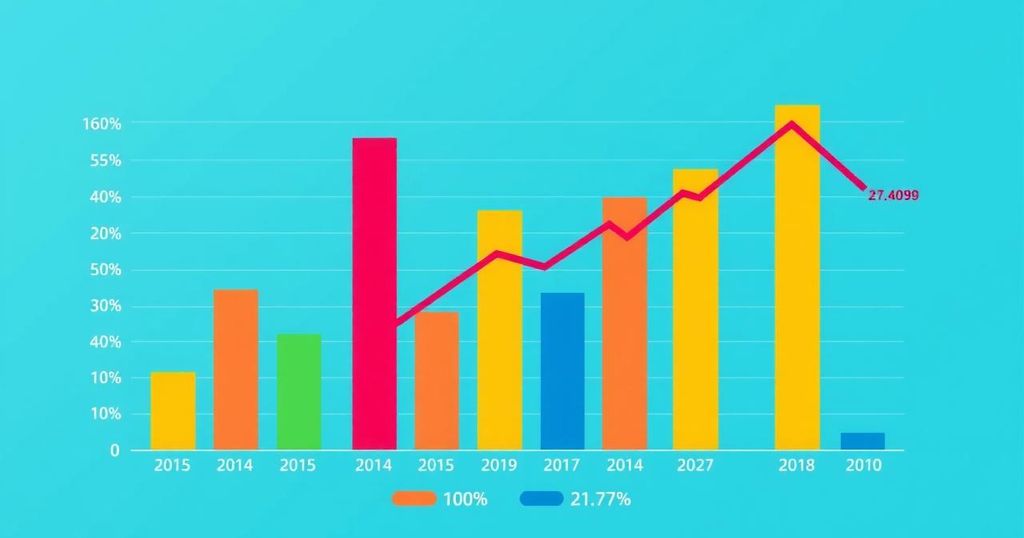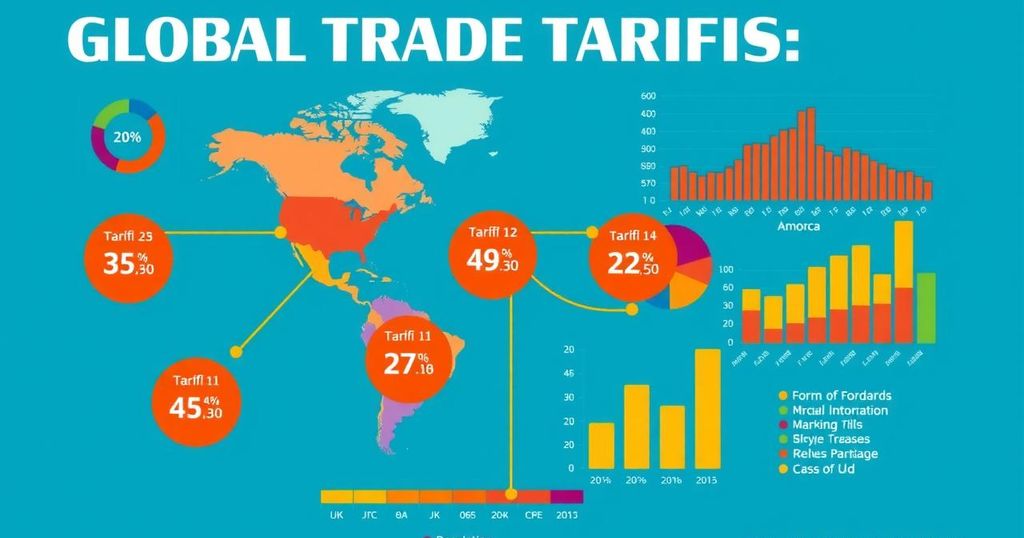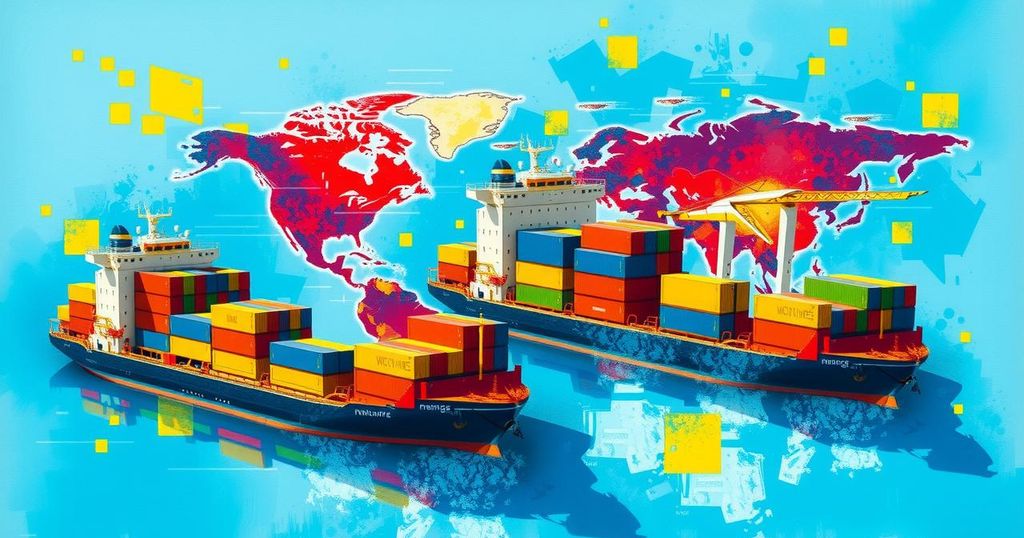President Trump announced a 25% tariff on countries buying Venezuelan oil, citing hostility from Venezuela. This follows concerns about crime linked to Venezuelan nationals in the US. The US markets reacted positively despite the announcement. China’s importation of Venezuelan oil is significant, with Trump’s tariffs potentially aggravating US-China trade tensions.
On Monday, President Donald Trump announced that a 25% tariff will be imposed on any nation purchasing oil from Venezuela. In his statement on Truth Social, Trump expressed that Venezuela has shown hostility towards the United States and asserted that these tariffs are a necessary measure to counter the threat posed by Venezuela to US freedoms.
Trump claimed Venezuela has deceitfully sent criminals to the US, although he did not provide evidence for these assertions. This announcement follows reports of delays regarding previously planned tariffs on imported pharmaceuticals, cars, and lumber, originally set to take effect on April 2, Coinciding with what Trump termed “liberation day,” when he plans to unveil reciprocal tariffs for other countries, he firmly intends to levy the new 25% tariff on Venezuelan oil as well.
Despite the announcement, US markets showed resilience and traded higher, seemingly unaffected by Trump’s remarks. Venezuela was a significant supplier of oil to the US last year, accounting for $5.6 billion in oil and gas purchases in 2024. This follows a brief lifting of sanctions by the Biden administration in 2023, which were reinstated in April 2024 after alleged electoral fraud by Venezuela’s leader, Nicolás Maduro.
The reinstatement of sanctions has not completely halted Venezuelan oil flow into the US, as Chevron’s joint-venture license for oil extraction was recently set to be revoked but extended until May 27 following discussions between Trump and Chevron executives. The initial revocation was partially in response to Venezuela’s reluctance to accept deportees linked to criminal activity.
Venezuelan crude oil production in 2024 was 921,000 barrels per day, with China being the top importer of this oil. Chinese imports totaled 351,000 barrels per day, surpassing US imports of 228,000 barrels daily. This context raises questions about how Trump’s tariffs will intersect with US-China relations, particularly as the existing trade landscape includes a 20% tariff on Chinese goods and potential accumulative tariffs if China continues to import Venezuelan oil.
The Chinese government responded to the tariff announcement, calling for the US to refrain from interfering in Venezuela’s domestic matters and to dismantle what they term “illegal” sanctions. A spokesperson for China emphasized that trade wars offer no beneficial outcomes, warning that increased tariffs could ultimately harm American businesses and consumers.
In summary, President Trump’s imposition of a 25% tariff on countries purchasing Venezuelan oil is part of a broader strategy to address perceived threats from Venezuela. This move raises significant implications for US-China relations, particularly given China’s import of Venezuelan oil and existing tariffs. As Venezuela navigates challenging economic conditions and foreign relations, the situation remains complex, requiring careful monitoring of evolving geopolitical dynamics.
Original Source: krdo.com




